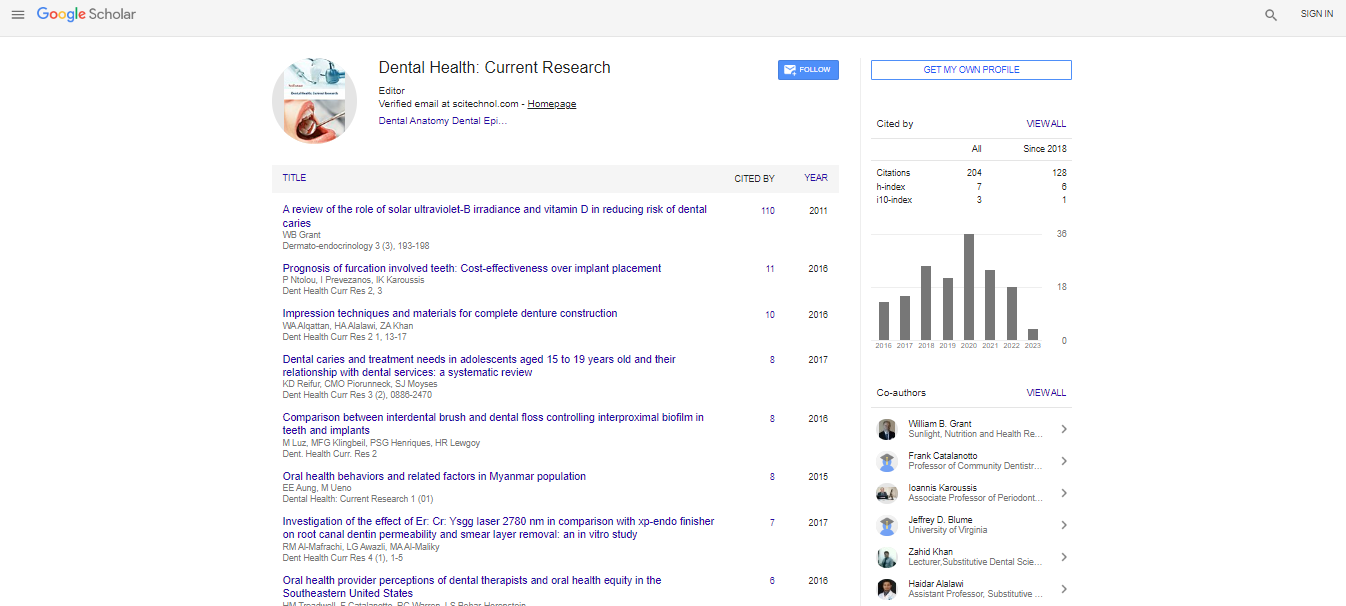Evaluation of efficacy and safety of indigenously developed dental implants: A randomized controlled non-inferiority clinical trial
Farrukh Faraz
Maulana Azad Institute of Periodontics, India
: Dent Health Curr Res
Abstract
Aim: The objective of the study were to compare NMITLI Dental Implants with standard control implants in single implant situations to analyze the survival rate and peri-implant marginal bone loss after one year in function. Materials and Methods: The protocols were formulated as per the CDSCO guidance document for conducting clinical trials in India, and the scientific literature available. Statistical assumption was done and sample size was calculated with a power of 90%. A total of 222 implants were placed in 140 patients under various treatment heads (Case: 143, Controls: 50). The primary measure of evaluation was the 12-month survival rate of the implants. Interim statistical analysis was performed for 100 case and 40 control patients, who had completed 1 year follow up after prosthetic rehabilitation. Results: The case and control implant groups demonstrated a survival rate of 93% and 100%, respectively, at the end of 12 months (inclusive of surgical and prosthetic failures of iatrogenic origin). Cumulative survival rate was 95% for the case group. The results concur with the previous assumption of a non-inferiority margin of 10%. With p value >0.05, it could be safely stated that the null hypothesis may be accepted for the trial, and the developed implants are non-inferior to the standard implants at sample allocation ratio of 2:1. Conclusion: The interim data demonstrated that the developed implant system is comparable, and noninferior to the standard marketed implant system.
 Spanish
Spanish  Chinese
Chinese  Russian
Russian  German
German  French
French  Japanese
Japanese  Portuguese
Portuguese  Hindi
Hindi 